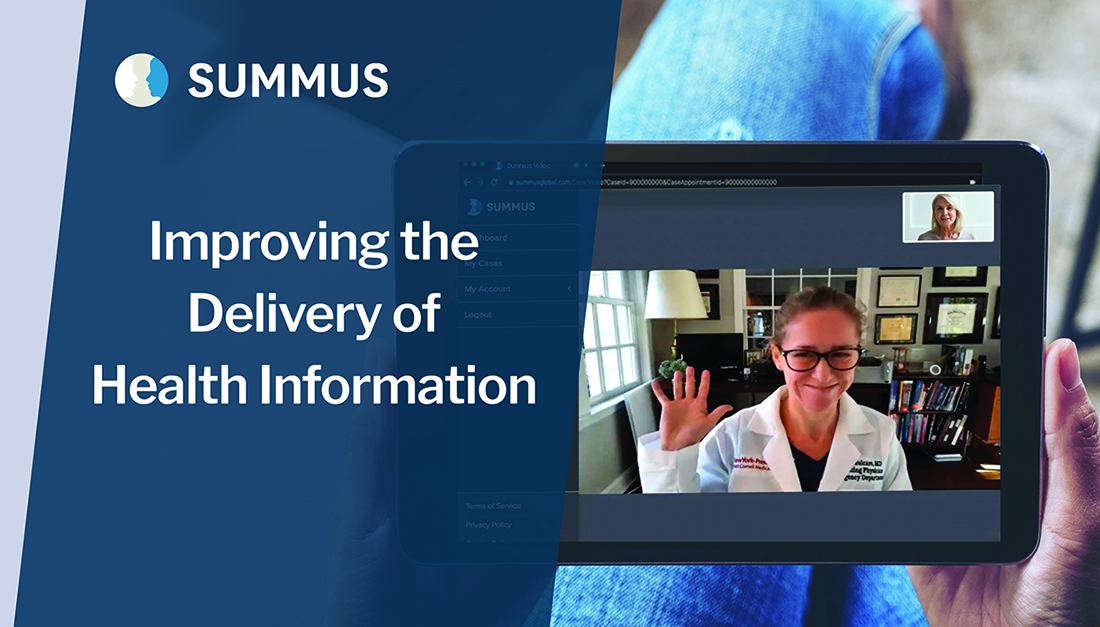October marks a time to reflect on the importance of health literacy and to expand its mission. Health literacy is about making health information—both written and spoken—easy to access, understand, and apply, and is essential to our work at Summus. As a physician, I know my words carry meaning and I take great responsibility in making sure I present information in a way Summus members can understand and that empowers them to make well informed decisions, big or small, to support their health journey.
Encountering Health Literacy
Those of us who live and breathe medicine on a daily basis appreciate how difficult health information is to comprehend. I often notice people struggling to understand seemingly simple items ranging from what type of specialist to see to how to take medication properly. While there is evidence to suggest that low health literacy is prominent among people of lower socioeconomic status, understanding health terminology and navigating the complexities of the healthcare system is challenging for everyone—no matter who they are, their level of education, or where they are from.
I recently spoke with a college-educated mother of three children who called because her 6-month-old child had developed a rash, which looked rather uncomfortable to her and was not going away. She had taken the child swimming for the first time the day before, and had started applying various lotions once the rash appeared, only to watch it get worse. There was a family history of eczema in her spouse’s family, but she had never experienced it herself or with her other two children. In hindsight for the mother, it seems pretty obvious that a combination of chlorine and scented lotions on an infant’s skin will exacerbate eczema if the infant is prone to it. Yet, for people who don’t have a medical background or personal experience with eczema, as was the case of this mother, avoiding scented lotions and chlorine (or at least bathing right after being in the pool) is not common knowledge. However, seeing the inflamed rash on her child seemed quite serious and was anxiety provoking, especially knowing that it would be a four-day wait to see the pediatrician.
It is interactions like this one that remind me to never make assumptions and that no one is fully health literate; at some juncture everyone will need help understanding or acting on health information. These interactions also make me grateful for the work we do each day at Summus in providing fast access to leading physicians who can address any health question. Through Summus we leverage the best virtual care technology to connect with members and live our mission of restoring human connection in healthcare.
Member Cues and Cultural Needs
At Summus, we use our elegant and simple platform to connect specialists and members via video. This enables our curated network of physicians to “see” members. Because physicians are interacting free of distraction, they are attuned to members’ nonverbal cues and can quickly identify a puzzled look or other cue that suggests the need for clarification. These cues are indicators for the provider to adjust their approach and adapt to the member’s needs. This is done by explaining medical jargon in lay terms, providing relatable examples, and using teach-back strategies to determine comprehension.
Comprehension is key. When people understand their health and have a plan of action for what is next in their health journey, they have the confidence and feel empowered to make appropriate decisions to support their health. At Summus, we take great pride in talking with members in a way that they can understand and is part of our foundation for building rapport and trust.
We also work closely with our members to learn about their cultural needs by asking open ended questions. Health literacy is shaped not only by personal experiences, but by one’s cultural values and beliefs. Our network of providers recognizes the importance of cultural competency and strives to understand each member’s culture and how it may impact their care options and outcomes.
For Summus, health literacy is a priority and a pursuit that we will continue to work toward to ensure that our members understand their health and the health care system to inform their decisions.
Learn How Summus Can Help Your Employees or Members Understand Their Health
Summus provides fast access to high quality leading medical expertise across the continuum of care and journeys. We support health literacy by improving the delivery of health information in a way that our members can understand to support informed decision making. Employers and payers can learn more about Summus here.
About the Author
Mary Mulcare, MD, FACEP, is the Chief Medical Officer at Summus and Clinical Assistant Professor of Emergency Medicine at NewYork-Presbyterian/Weill Cornell. She has held several leadership roles at Weill Cornell. Dr. Mulcare graduated from Columbia University College of Physicians and Surgeons and completed a fellowship in Geriatric Emergency Medicine at Weill Cornell Medical Center.






